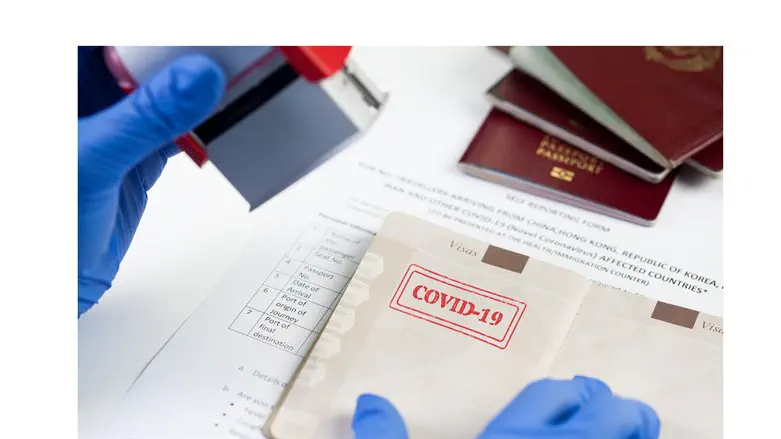
With a new and potentially more contagious variant of the coronavirus spreading through the world and known to already be in Israel, Professor Salman Zarka, Israel’s coronavirus project manager, discussed the country’s efforts to combat “Omicron,” as it has been named.
“According to the data we have, caution is definitely advised,” Zarka said, speaking on KanReshet Bet on Sunday morning. “All the same, I must stress that this is not a black-or-white situation with regard to the vaccine. Vaccination remains a relevant factor in the equation; it’s still going to be helpful. The question is only how much.”
Israel has already imposed stricter regulations in light of the new variant’s spread, including a two-week ban on all foreign nationals entering the country. Zarka expressed satisfaction with the government’s decision to do so, saying, “Since we only have limited information on the new variant so far, it is necessary to tighten the restrictions, and I think the steps that have been taken are reasonable. This new variant is already in the country and what we’re trying to do now is keep additional cases out, as far as possible. I think we can say at this point that we’re in control of the situation,” he added.
According to the Health Ministry, seven cases of the Omicron variant have been discovered in Israel (and not eight as originally thought). Four of the seven cases are people who recently returned from abroad. Three of the seven are considered fully vaccinated; the other four received a second dose over six months ago.
Meanwhile, Health Ministry director-general Prof. Nachman Ash told Galei Tzahal this morning that, “If the indications we have so far are confirmed, then we already have transmission of the new variant within the country, and that is, of course, problematic. In the next few days, we will be conducting PCR testing to detect the new variant and find out just how far it may have spread. I do not believe it is widespread at this point, but we’ll know more in another few days.
“If it emerges that the vaccine is effective against the new variant, then we may be able to consider relaxing the restrictions to allow tourists to enter the country once more,” he added. “However, if the variant is extremely contagions, we may want to be more cautious. The two weeks we settled on is a form of time-out that allows us to assess the situation,” he explained.
